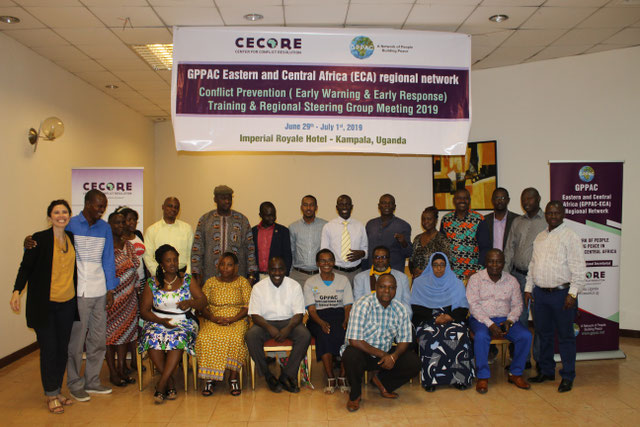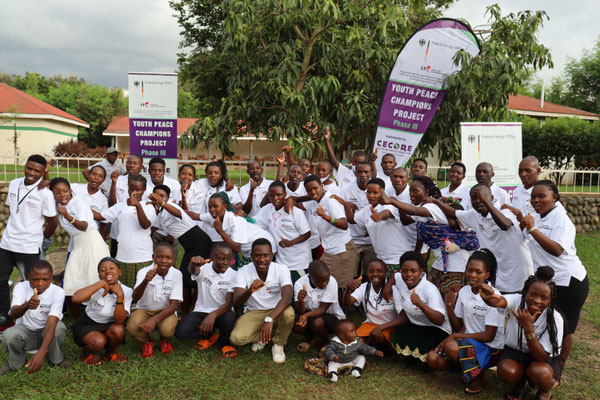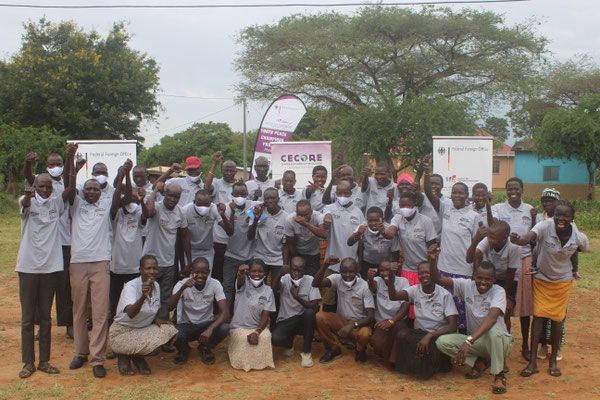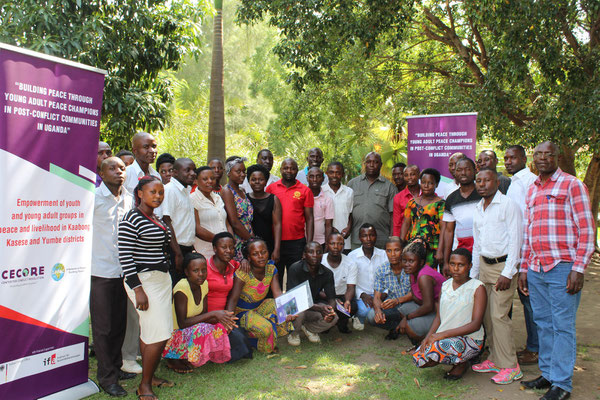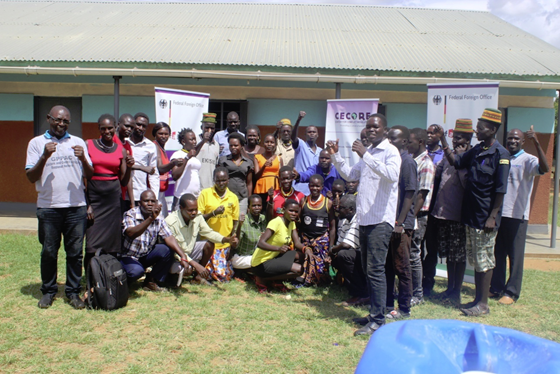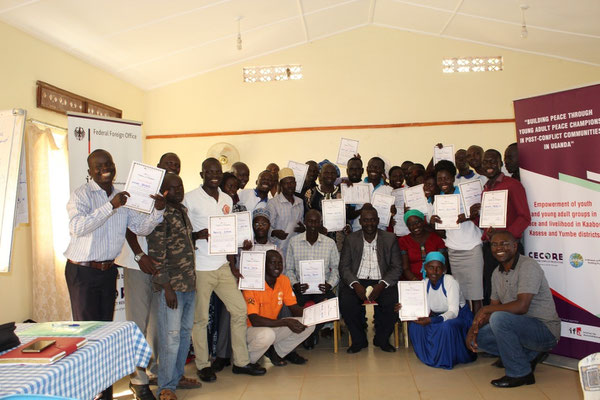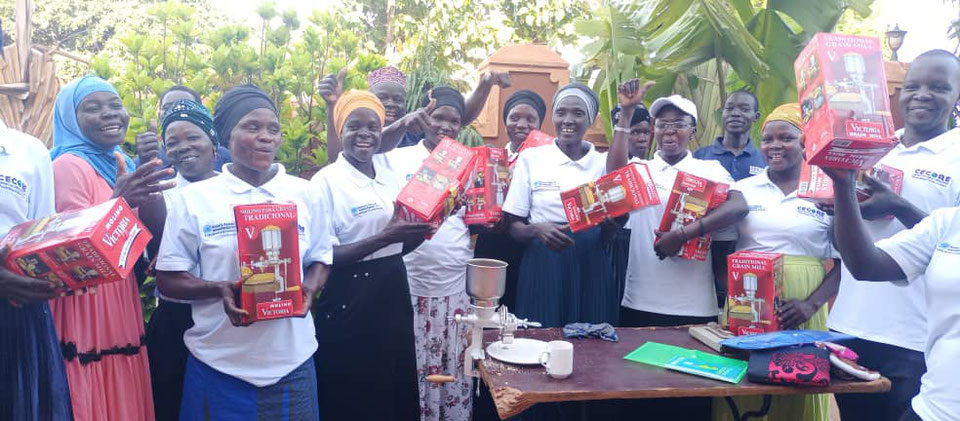Small Arms & Light Weapons (SALW) Control
Reducing Harm
Promoting safe communities by preventing the illicit spread and misuse of firearms through advocacy, training and policy engagement.
CECORE works with communities, district focal points and regional partners to reduce the risks posed by small arms and light weapons – through awareness campaigns, training, policy advocacy and regional collaboration.
Small arms and light weapons fuel insecurity, exacerbate violent conflict, and undermine development. CECORE addresses this challenge by combining community-level prevention, stakeholder training, research and advocacy – strengthening local capacities and influencing policy to limit the availability and misuse of SALW in Uganda and the broader Eastern & Central Africa region.
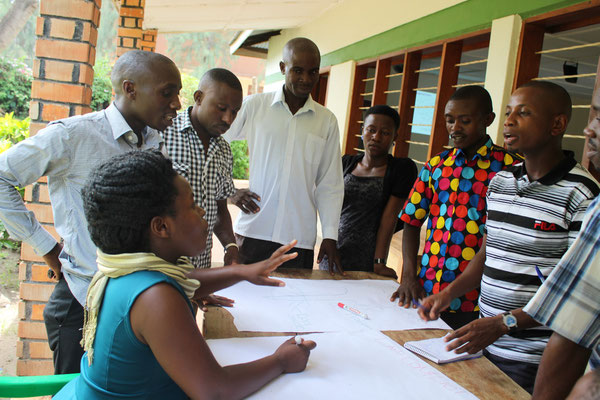
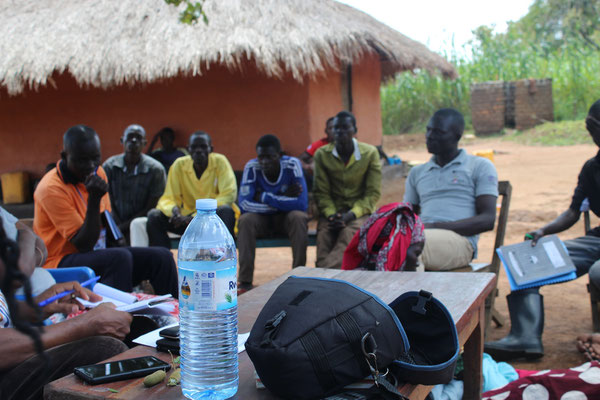
Why SALW control matters
Small arms and light weapons (SALW) contribute to fatalities, gender-based violence, criminality and cycles of revenge. Controlling their spread is essential for protecting civilians, sustaining peace, and enabling social and economic recovery in affected communities.
Our approach
CECORE applies a multi-pronged approach that combines:
Community awareness & behavioural change – public campaigns, community dialogues and targeted messaging to reduce demand for weapons and promote non-violent dispute resolution.
Capacity building – training district-level SALW focal points, local leaders, security actors and civil society on SALW monitoring, safe storage, community-based prevention and reporting mechanisms.
Policy advocacy & partnerships – engaging with national government, regional networks and treaty frameworks to strengthen legislation, implementation and regional cooperation.
Evidence & knowledge building – rapid assessments, research and documentation to inform targeted interventions and policy positions.
Regional engagement – collaborating with regional partners and networks to ensure cross-border coordination and information-sharing
What CECORE does (activities)
Train district focal points and community leaders on SALW risks, prevention and response.
Conduct community dialogues and awareness campaigns in affected districts.
Support implementation of international instruments and national policies through advocacy and technical inputs.
Work with partner networks to observe and participate in global/regional SALW initiatives and weeks of action.
Produce briefings, case studies and policy notes that document local SALW dynamics and recommendations.
Geographic focus & beneficiaries
CECORE’s SALW work focuses on communities and districts affected by armed violence and weapons proliferation across Uganda and within the Eastern & Central Africa regional network. Primary beneficiaries include vulnerable communities, youth at risk, women and local leadership structures.
Key partners
CECORE implements SALW activities in collaboration with national institutions, local governments, civil-society networks and regional partners to amplify impact and ensure coordinated responses.
Achievements & impact
Trained district-level focal points to improve local SALW monitoring and community outreach.
Carried out targeted awareness campaigns reducing community acceptance of weapons and promoting safe storage practices.
Contributed evidence and policy inputs for national/regional discussions on SALW control.
Now, it’s your turn.
You’ve seen the impact. You’ve heard the stories. Now, it’s your turn to take action. Whether it’s giving your time, sharing your voice, or making a donation, you have the power to create real change.
FAQ’s
SALW stands for small arms and light weapons – portable firearms and related weapons that are often used in local armed violence.
Because easy access to SALW increases violence, undermines security and development, and prevents long-term peace.
Contact CECORE via the Contact page or the SALW focal point form to request training, awareness sessions or to report concerns.
